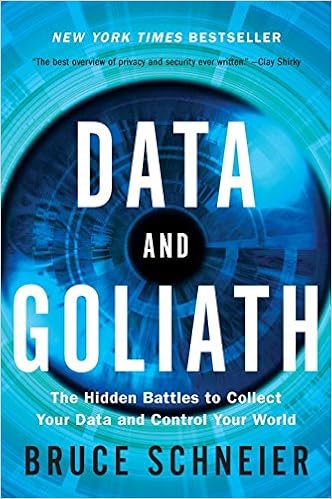We hear mainstream media recommending different applications and services for online privacy. Most of these outlets are wrong and it’s frustrating to see the public be mislead.
There are 2 ways to determine how “private” your private online solution is.
The first way to know is the easiest. Is It Free?
You’ve heard the expression, “if it’s free, you’re not the consumer, you’re the product”. Well that's very true. Remember in the early days of the Internet when all the critics were asking’ “How will these free sites make money?” Now we know how
For starters, your browser was free wasn’t it? It either came with your device or you could download it for free. This amazing tool that lets you access so much information is free? How do you think a software company that had to pay to build that browser stays in business? How do you think they can afford to make updates? Your “free” browser knows EVERY search you made, every site you visited, every email you read/sent. Sounds pretty costly now doesn’t it?
So you surf in Incognito Mode? How much did you pay to use that? That free ad blocker program keeps you private right?
Now let’s look at all of those wonderful sites that let you do so many great things, for free. You can get just about any question answered by asking Google. You can share your thoughts and pictures with your friends on Facebook. You can play doctor by asking WebMD medical questions. You can communicate with anyone with email. Hmmm, those are all free aren't they?
That “private” search engine doesn’t share your search queries right? It really doesnt matter if they do or not, because your browser, your Internet provider and the sites you visit will be able to identify you, your device and know what you searched for. Private search engines are one of the biggest online myths out there and yet the media still advises the public to use them.
“Free” WiFi? Have you ever wondered how those retail stores that were struggling before, are now able to do so well after free WiFi was offered? You paid a couple bucks for a cup of coffee and then logged into THEIR website to accept their terms and conditions for their “free” WiFi service. Your device touched their website. What other establishment would let you take up space for hours without purchasing something. You are the product baby.
“One person, one cup, one neighborhood at a time”...doesn’t sound so wholesome now does it?
With each click, search, surf, email, post etc you are allowing every site and ISP to know more about you. If they aren’t leaving identifiers (cookies) on your device, they are reading the ones that are already there. With these identifiers that can build a very extensive profile of you.
The second way you can determine how “private” you really are. One of the best websites we know of is
www.whatismybrowser.com This site gives you a complete rundown of your device on their site. It analyzes your OS, browser and all of the functions your browser has.
What we hope you can see here is that it PROVES that if their site can see, touch and identify your device, then ANY site can. When a website can see and touch your device it can identify you by the numerous cookies on your device. If the site is friendly you will probably only receive more cookies and be tracked online. If the site isn’t friendly, you could get a virus, be tracked and or locked out of your computer. Either way, all the info from your device will be sold and you have no idea to who.
Our next blog will show you How To Be Private Online















